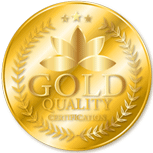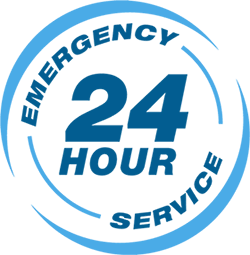FAQ
Cardiac Faq's
Heat attack occurs when blood supply to the heart is suddenly blocked, usually by a blood clot. It is also called Myocardial Infarction (MI) and is a medical emergency treated without delay.
- Chest pain or discomfort at the center of the chest
- Pain in the left arm and shoulder, neck, jaw or back
- Sweating
- Feeling of weakness or dizziness
- Difficulty in breathing
- Rapid heartbeat
- Nausea or vomiting
Yes, it can; it is known as 'Silent MI'
According to American Heart Association, the major risk factors are:
- Age: More than 65 years
- Men have a higher risk than women
- Positive family history
- Cigarette smoking
- High blood pressure
- High cholesterol
- Inactive lifestyle
- Overweight
- Diabetes
When the blood vessels (called coronary arteries) which supply blood and oxygen to the heart are narrowed, it causes CAD, which can also cause a heart attack.
It is a disorder in which the pressure in the arteries is persistently high.
Lead an active lifestyle, don't be a couch potato!Opt for a low salt diet, maintain an appropriate weight, and avoid alcohol intake and smoking
It is the sound made by blood circulating through heart chambers and valves. These can be heard via a stethoscope. A heart murmur can occur in various cardiac diseases. Depending upon the type of murmur, your cardiologist will guide you regarding further evaluation, if required.
ECG is a non-invasive diagnostic test that measures and records the electrical activity of the heart.
It is used to diagnose coronary artery disease. During this test, you will have to walk on a treadmill while the physician will regularly monitor your ECG, heart rate, and blood pressure.
It is commonly known as Echo. It is a non-invasive and painless test. It gives precise information about the heart structure, valves, and the pumping capacity of the heart. It is a very comfortable test in which you have to lie on an examination table, lubricating jelly is rubbed to the chest, and a probe (like a thick blunt pen) is placed on the chest, which picks up the cardiac activity.
Oats, Almonds, Green leafy vegetables, Soy Protein, Olive oil, Tomatoes, Whole grains( wheat, pulses), Tofu, Brown rice and Tuna
- Aerobic exercises for 20 -30 minutes daily, at least 3-4 times per week.
- Remember to warm up before your workout as well as a cool down after it.
- Gradually increase your activity level
- According to Harvard Health Publication, Yoga does have beneficial effects on the heart as well.
- Most importantly, talk to your doctor so that you do not overexert yourself.
- Avoid using the escalator; instead, use the ramp or stairs (as do most doctors in our Multi-Speciality hospital!).
- Use a bicycle or walk rather than using a vehicle for short distances.
- Make the weekends more productive- choose an outdoor activity with your friends or family.
Yes, it does. Stress can be emotional or physical. While it is not always easy to avoid stress, you can reduce it and maintain a positive attitude, which will help you combat stress.
Cardiac Surgery Faq's
Angiography is a specialized X-ray study of the blood vessels of the heart. It is a gold standard diagnostic test to detect blockage or narrowing of the heart blood vessels.
Your cardiologist may suggest this procedure if you have symptoms of coronary artery disease – such as chest pain(angina), if you have suffered from a heart attack, heart valve problem, congenital heart disease( a heart defect which was present at birth), or heart failure.
It is done by a unique technique known as cardiac catheterization in a specialized operating theatre known as the Cath Lab:
- A long flexible tube (catheter) is inserted into the blood vessel of the groin or arm.
- The catheter is moved up within the artery till it reaches the heart.
- A special dye is injected, and multiple X-ray images (angiograms) are taken.
Our specialized team of doctors has been performing this procedure regularly in our state-of-the-art Cath Lab.
Our specialized and highly experienced cardiologists team will describe the procedure to you and your family in detail. For convenience, please carry your previous medical reports with you.
The test will take 30 minutes to 1 hour, though it can vary depending on the case.
The test will take 30 minutes to 1 hour, though it can vary depending on the case.
No, you need not. This particular test can be done on an outpatient basis, and admission is not required.
After the test, you will be moved to the recovery area to recuperate and rest for approximately four to six hours. Then, the interventional cardiologist will explain to you the result of the test in detail. Depending on which, you will be advised to go home or stay in the hospital for further evaluation.
Usually, the side effects are minor such as bleeding and infection. Serious complications are rare but can occur sometimes.
It is a procedure to open and widen the blocked and narrowed heart blood vessels. It is also known as Percutaneous Transluminal Coronary Angioplasty (PTCA) or Percutaneous Coronary Intervention (PCI)
Depending upon the blockage in the arteries, it can be carried out simultaneously with angiography.
During the procedure, a small balloon is gently inflated in the artery, and a stent is placed to keep the artery open.
Your doctor will prescribe you the medication at the time of discharge and guide you about wound care. A little rest is advisable, and you can gradually return to your daily activities as directed by your doctor.
Coronary Artery Bypass Graft (commonly known as Bypass) is a procedure where blood flow and oxygen supply to the heart are improved by forming a new route or bypassing the narrowed or clogged arteries.
You will require routine blood investigations, ECG, chest X-ray, Echo and any other examination which your doctor advises.
No, you will be unconscious during the entire surgery.
You will wake up in the postoperative Intensive Care Unit (ICU). You will have IV lines, a breathing tube in your throat, and chest tubes. Your heart rate, BP, and pulse will be monitored. The breathing tube is usually taken out after 24 hours. Our ICU is fully equipped with round-the-clock superior nursing care.
You will be able to walk using support a day after the surgery. Gradually your physical activity will increase day by day. The physiotherapist of our hospital will teach you postoperative exercises.
Yes, your family is welcome to accompany you till the time you are taken up for surgery. After which, they can wait in the lounge, where they will be updated about the progress of the surgery.
You will primarily be discharged after a week from the hospital as per your doctor's instructions.
Faq's
Patiala Heart Institute has healthcare tie-ups with all the major healthcare insurance providers, including HDFC ERGO Health Insurance, Star Health & Allied Insurance Co. Ltd., ICICI Lombard, ICICI Prudential, Apollo Munich Health Insurance, Max Bupa Health Insurance, and more. Click here to check the list of healthcare insurance providers
Yes, we provide convenient vehicle parking facilities for our patients and visitors at Patiala Heart Institute. We understand the importance of accessibility and strive to ensure a smooth experience during your visit to our hospital.
To ensure convenience and flexibility for our patients, Patiala Heart Institute offers various payment methods, including cash, credit card, debit card, online payment, GPay, PhonePe, and UPI payments.
Only one attendant is allowed, and no attendant will be allowed without a gate pass.
Booking an appointment at Patiala Heart Institute is easy and convenient. We offer multiple channels to schedule your appointment with our healthcare professionals. Here are the different ways you can book an appointment:

Say Hello to
A Pain- Free Future
Don’t Compromise on your Health, Book your Appointment Now!
Copyright © 2024. Patiala Heart. All right reserved. Design & Developed By: Dilemmas Diluted




